Energy-efficient home improvements
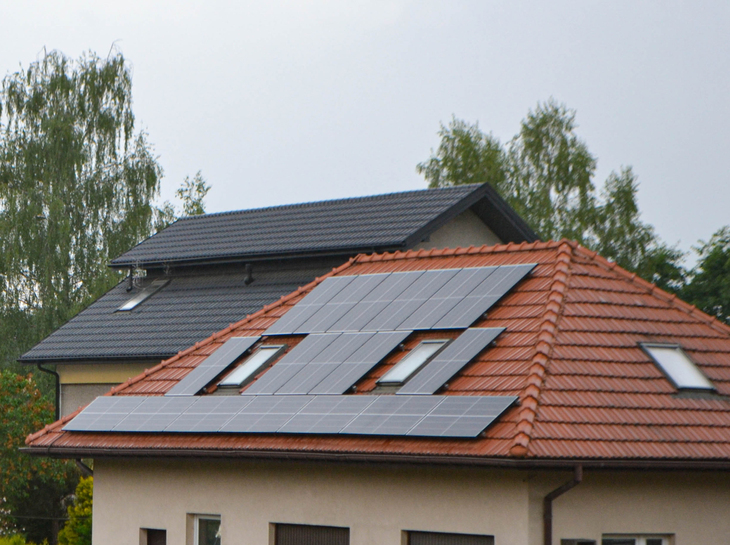
Energy efficiency has become a hot topic recently, as Europe has experienced a soar in energy prices and skyrocketing inflation. It is only natural, then, that you may have turned your mind to how to save energy in your home in order to get your bills down. Of course, one way to reduce your energy bills is to use less energy in the first place – by turning down the thermostat and wearing more clothes, or by changing your cooking habits. While lifestyle changes can be effective, a far more worthwhile investment is to make your property more energy efficient in order that you can bring down your energy bills long term.
Energy efficiency for rental flats
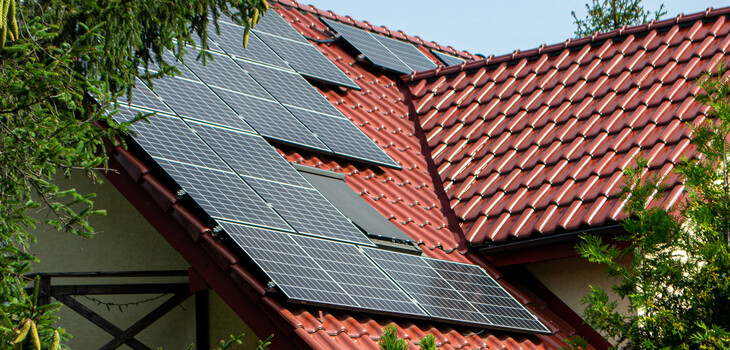
As a landlord, it is also important to always keep energy efficiency in mind – not only are there EU directives stipulating minimum acceptable energy efficiency in certain areas of the home, but improving the energy efficiency of your property will also make it more competitive, especially if you include the costs of utilities in your rent price. What’s more, potential tenants will be able to see the property’s energy efficiency rating, which will inform their decision about whether to choose your property.
What is the average heating bill in Germany and the Netherlands?
The cost of your heating bill will of course depend on various factors such as the size of your property, the time of year, and your personal needs and habits. However, according to statista.com, the average German household spent €882 a year on heating and hot water in 2020. Only about half this money goes to the energy supplier – along with VAT and grid charges, the government also levies charges on power to invest in green energy. Unfortunately, these costs are climbing rapidly because of the aftershocks of the pandemic and the war in Ukraine. Luckily, you can combat these climbing costs by making lasting energy-efficiency savings to your property and make more efficient use of the energy you consume.
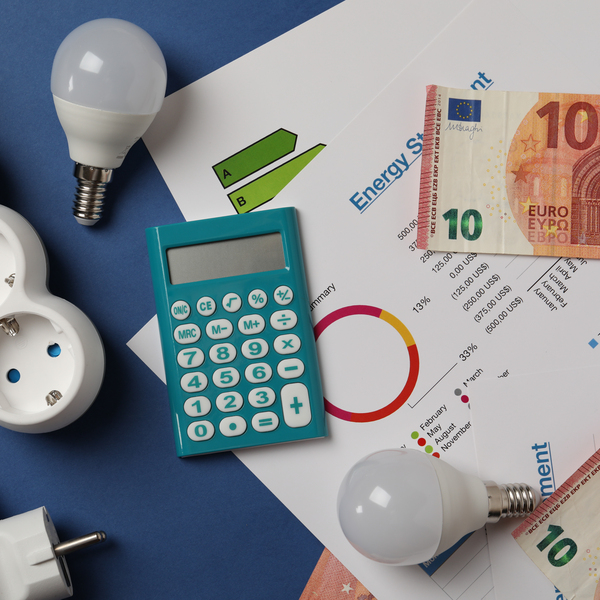
How to improve home energy efficiency for heat and lower utility bills
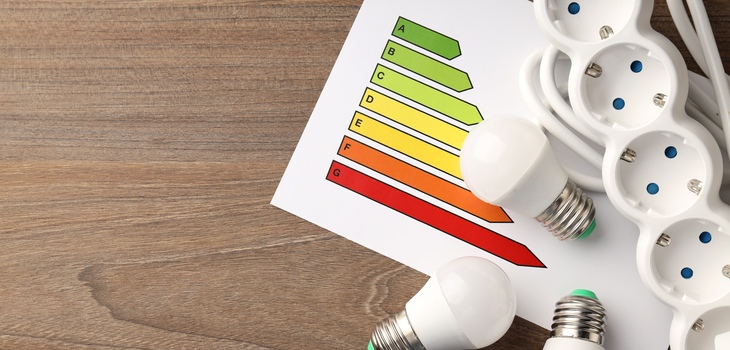
One of the first starting points for improving energy efficiency in your home is to invest in a smart meter. Smart meters measure your energy consumption, meaning you can track behavioural changes and see if they have an effect on your bills. But of course, they can also track the effects of any changes and investments you make in your home to make it more energy efficient.
Below are some of the key ways you can make your property more energy efficient in order to get those energy bills down. It’s worth considering the energy efficiency of each of these house features so you can figure out what elements of your home are the biggest energy-offenders.
Heating systems
The nature and efficiency of your heating system will have the most crucial and direct bearing upon your energy bills and the energy efficiency of your property as a whole.
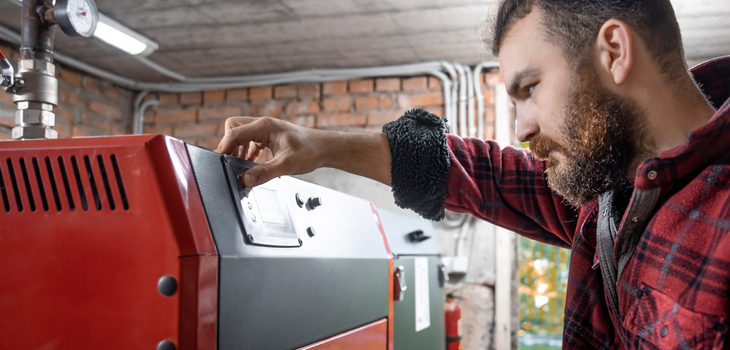
The most common of these is a boiler, which usually uses gas to heat water. This water is pumped around your property and is then controlled by radiators. Once the water in each room of your property has cooled down, it returns to the boiler to be reheated. There’s a reason why boilers are popular – they are an extremely efficient way of heating your home and therefore cost-effective.
Another effective and efficient way of heating your home or property is a heat pump. Heat pumps are like air conditioning but work in reverse – instead of removing heat from your home, they search for heat wherever they can in the outside environment and pump it into your home. Heat pumps can either be air-source, which is more common, or ground-source, getting their heat from underground. The latter of these is much more efficient, since the underground temperature is constant and much warmer than the air temperature in the winter. However, air-source heat pumps are much more straightforward to install and therefore more popular.
You can of course use heaters that utilise electricity to heat your property, but these heaters tend to be less energy efficient. However, electric heaters are good if you want a quick and cheap solution, or if you happen to want heat in a specific place at short-notice. However, they are not a good sustainable solution for long-term energy efficiency. If you do decide to go down this route, then the best electric heaters for energy efficiency are infrared panels. These don’t have moving parts, turning 100% of your electricity into heat.
Insulation
Insulating your property properly is perhaps the other biggest energy saver. It keeps your house warm in the winter, and it even has the additional benefit of keeping the heat out in the summer. Insulation can include everything from solid wall insulation to cavity wall insulation to loft insulation. Moovick’s handymen would be happy to give you advice on the best place to start if you want to improve the insulation in your property.
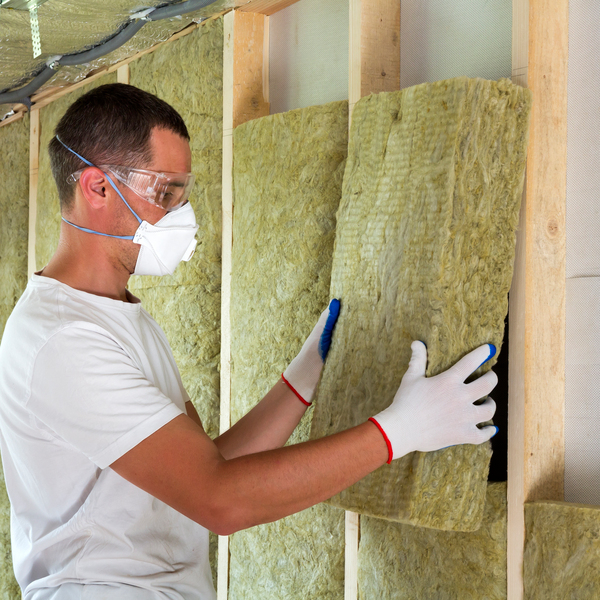
Double glazing
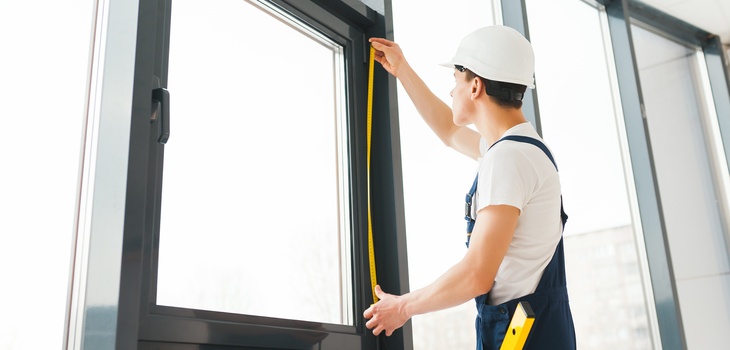
Energy-efficient windows are crucial to an energy-efficient property. While windows are designed to let light in, they are also excellent at letting heat out. Double glazing prevents this from happening. Double-glazed windows have a layer of air trapped between the two layers of glass, meaning that heat struggles to escape through them, because air is naturally good at insulating. This also means you can enjoy the benefits of solar gain, and the cold air outside also struggles more to get in, giving you a threefold energy efficiency advantage. Triple glazing can provide an even more efficient solution. Of course, our handymen at Moovick can take care of double glazing installation, should you choose to go down that route.
Renewable energy
Utilising renewable energy will of course help you cut your energy bills, but it can be a rather large investment. Installing solar panels on your roof can lead to radical energy savings, and is also a sustainable option that helps protect our planet. While we don’t underestimate the cost of such an investment, our handymen are nonetheless on hand to help you should you wish to make such a change in the interests of making your property more energy efficient.
Consider the efficiency of your appliances
Large appliances, such as ovens, fridges and washing machines, guzzle up energy. If you want your home to be more energy efficient, then it may be worth finding out just how efficient your appliances are. Generally, appliances come with an energy efficiency class which, at least in Germany and the Netherlands, will be included in the details and instructions that come with each appliance. If you discover that any of your appliances don’t class very well on their energy efficiency, it may save you money in the long run to invest in a replacement that is less energy-hungry.
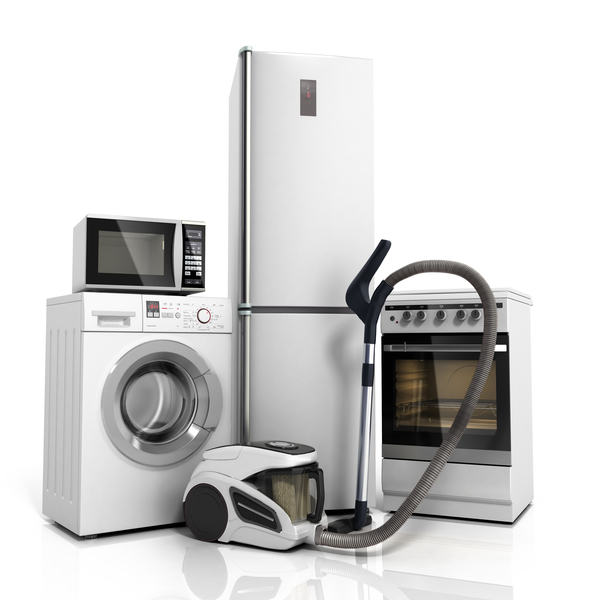
How can Moovick help to make your property more energy efficient?
Moovick’s platform makes it easier than ever for you to find handymen near you for your domestic needs. If you’re interested in making your property more energy efficient, then look no further – our handymen are on hand to help you save precious money on your energy bills. Just look for handymen near you on our website, and you could have someone over helping you to install a new heating system, insulation or double glazing within hours.
Popular Articles

Cold Chain Logistics: Safeguarding Perishables with Precision

The Pros and Cons of Relocating Abroad in Winter

Preparing for the Big Move: Essential Steps for International Reloc...
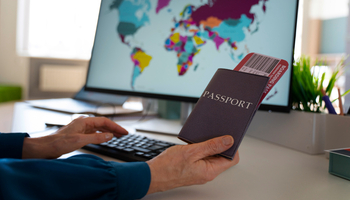
Semi-Skilled Success: Earning Strategies in Düsseldorf for Immigra...
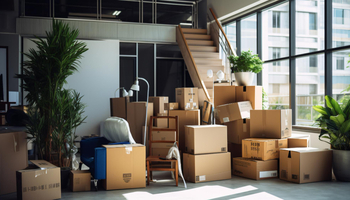
Why you should invest in professional office relocation services

Moving to Europe: A Guide for Indian Expats

